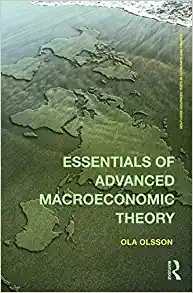Question
1. When I came to the United States, I did not choose to find a job directly but decided to continue studying. On the surface,
1.
When I came to the United States, I did not choose to find a job directly but decided to continue studying. On the surface, I lost an income, but in fact, I considered the opportunity cost. Looking for a job in my current situation, I cannot find a job with a good income or even a job that I really love. And through four years of study, I will have more choices and possibilities in the future. During my studies, I can also engage in a part-time job. Therefore, compared with the cost of four years and tuition fees, and more possibilities in the future, I think this opportunity cost is worth the investment.
I am from China, and sometimes I pay for food from China, such as some snacks. The price of these snacks in the United States may be several times that of China. However, I can't help but buy it. The reason is scarcity. First, there are relatively few merchants selling Chinese snacks in the United States. Second, China and the United States are far apart, and it is almost impossible for consumers to purchase in China. Third, these snacks have no substitutes for similar tastes in the United States. Therefore, even if it is expensive, I can only buy it because I really want to taste the flavor from my hometown.
2.
Common items that I could think of, at the top of my head, that I believe people pay too much for are souvenirs like shot glasses, specifically those that can be bought from souvenir shops in busy areas of cities or popular stores. I think that if people decided to go a bit further away from the popular areas, then they could find the same items at a cheaper price. I think that is similar to the example that the professor brought up in the prompt but I just can't get over the fact that a single shot glass could sometimes cost as much as 20 Dollars. However, I understand why people would choose to settle purchasing overpriced souvenirs, and it has to do with what we are learning about right now. Starting off with opportunity cost, or what is given up when choosing one option over the other. In my example, the options that tourists can choose between could be energy compared to money. Tourists have to decide whether they would be more willing to lose either energy traveling to a further place to obtain the same item, or paying an additional amount of money for the convenience of already having the item in front of them. I think that the choice greatly depends on the person because some people find it more fulfilling to discover more of the place that they are visiting while others are would prefer to stay in the popular areas.
Responses 70-100 words
Step by Step Solution
There are 3 Steps involved in it
Step: 1

Get Instant Access to Expert-Tailored Solutions
See step-by-step solutions with expert insights and AI powered tools for academic success
Step: 2

Step: 3

Ace Your Homework with AI
Get the answers you need in no time with our AI-driven, step-by-step assistance
Get Started


